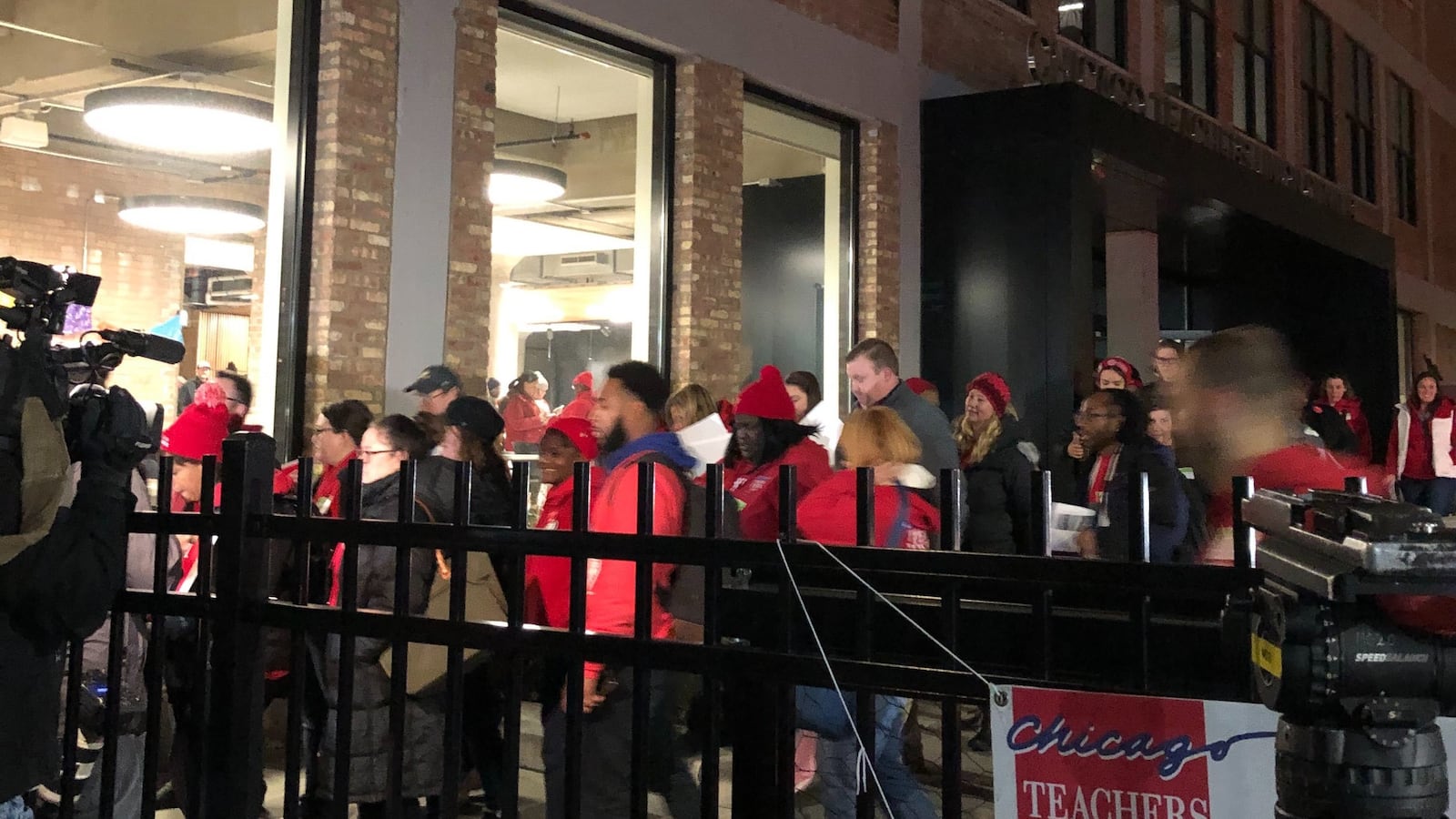The Chicago teachers strike will enter its tenth day Wednesday, with negotiations still tripping over the big issue of teacher prep time, plus newly surfaced issues — and no tentative agreement.
School could reopen Thursday only if bargaining suddenly accelerates toward agreement, so that the union can convene its 700-member House of Delegates Wednesday evening to approve a draft deal.
So far, that appears unlikely, given the union’s sharp criticism of city offers and its tendency to downplay gains it has won on class size reductions, staffing increases, and pay raises.
Attendees described Tuesday’s meeting of the House of Delegates, called to review the union’s analysis of the offers on the table, as positive despite the palpable exhaustion in the room after nine days on strike, Chicago’s longest in the last three decades.
“It was kind of like a strike rally,” said Ed Hershey, a science teacher at Lindblom Math and Science Academy. However, the mood turned serious when delegates began paging through the union’s analysis of the city’s latest offer.
Mayor Lori Lightfoot remained adamant that the city already has presented the union a generous offer and is unlikely to enhance it. “This is a message to the CTU leadership: You can end the strike,” Lightfoot said Tuesday evening after meeting 3½ hours with union leaders Jesse Sharkey and Stacy Davis Gates and failing to close a deal.
Lightfoot said the city had offered an additional $10 million to further reduce class size and $5 million more to boost pay for veteran educators — but she said the city would hold the line on starting the school day later or allowing more instructional days off so that teachers can have more prep time.
Still, the union’s ask for 30 additional minutes of prep time daily for elementary teachers remains popular among members. The initial ask has been whittled down to options such as using teacher-training days for prep time instead of cutting into instruction time. But union bargaining team members say they still have seen no interest from the city.
In the meeting with delegates, the union described a longer list of unresolved issues, including teacher evaluations and the option to bank sick days.
It is not clear how much of the back-and-forth is posturing in the final hours and how much are union must-haves that could prolong the walkout.
Union leaders said Tuesday that they felt they were close on some issues, but are still waiting to see detailed proposals on the city’s latest offer on class size.
Teachers could lose their health insurance on Friday if a deal is not reached.
Lightfoot said on Tuesday that the union kept “moving the goalposts” by bringing up new issues “in the 11th hour,” including insisting she support two legislative priorities — a specific bill setting up a large elected school board and another broadening the list of issues over which the union could strike.
Responding to that statement, Davis Gates said, “when you are bogged down by negotiating clean bathrooms, when you are bogged down by negotiating a 10-to-1 pre-K student-to-adult ratio, those are things that get in the way a lot. They said no a lot. No, no, no.”
She said members were committed to securing a contract that promised real change. “You don’t go on strike for this many days to say, ‘I wish I would have.’”
But now that 300,000 students are entering a 10th day of no school, and as the accounts of missed state tournaments, delayed college applications, and stymied opportunities for learning proliferate, many ask whether holding out will secure more gains or diminishing returns.
“Something that is always interesting to look at after a deal is reached is how much did things change,” said Kency Nittler, the director of teacher policy for the National Council on Teacher Quality. “Sometimes you look at it and what they won going on strike was so little you wonder whether it was worthwhile given the cost to students.”

